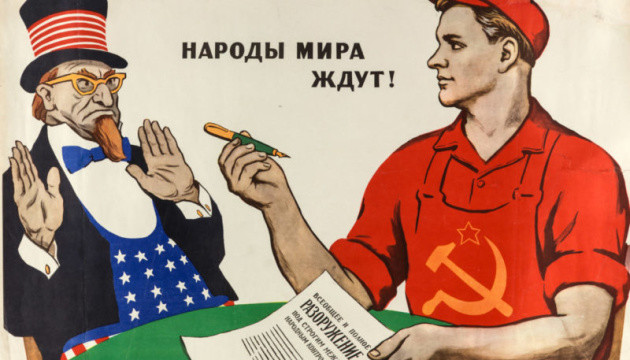
Analysts of the monitoring group Ukraine War Disinfo Working Group, who have been studying Kremlin propaganda in Central and Eastern Europe for 6 months, provided their recommendations for countering it in the future.
The recommendations are based on the findings regarding Russian propaganda, tracked by CSOs and think tanks in 15 countries: Estonia, Latvia, Lithuania, Belarus, Poland, Ukraine, Slovakia, Czech Republic, Hungary, Romania, Serbia, North Macedonia, Bulgaria, and Georgia.
Thus, in the final report, analysts suggest that the network of Russian propaganda in the future will focus its efforts on spreading calls for peace, but on Russia’s terms, with an emphasis on the importance of supplying Russian energy during the coming winter.
The researchers also believe that the Kremlin will increasingly focus on influence operations, using the factors to which societies of different countries are vulnerable, for example, historical trauma and insults, or religious or ethnic differences. Frozen conflicts, disputed territories — all this can also be used to try to expand the influence of Putinism.
The attention of researchers was attracted by the launch of the RT Balkan propaganda channel, so, analysts expect a significant increase in the Kremlin’s destructive information operations in the Balkans, in particular, in Bulgaria and Montenegro.
The researchers also reviewed four main narratives in Central and Eastern Europe that Russia had disseminated in previous years in preparation for an attack on Ukraine.
1. NATO (sometimes the West) is a cabal of secret globalists, and the US is an expansionist imperialist force intent on destroying “sovereign” states like Russia.
2. Russian communities living outside Russia, such as in the Baltic States and Ukraine, are subject to persecution, forced assimilation and, in some cases, genocide by nationalist authorities.
3. The Ukrainian government is a corrupt, illegitimate, fascist, Nazi, satanic puppet of the West, which does not act in the interests of the Ukrainian people.
4. Russia is a superpower with an invincible army, unlimited resources, and the only force that “protects” the world from Western imperialism.
This example of general narratives illustrates perfectly the standard formula for the Kremlin’s destructive influence. Propaganda selects a socially vulnerable group that is easily convinced that their rights are being abused by the “evil forces” of the United States and the West. And the good and strong Russia is precisely fighting these “evil forces.” Bolshevik propaganda once acted in the same way: “We do not seize new countries, but simply liberate the working people from the capitalists and imperialists.” This nonsense about “eternal enemies” allows the regime to keep its people in submission, because of the fear of an external threat. As George Orwell famously wrote in “1984,” “Oceania has always been at war with Eastasia.”
The depiction of the United States and NATO as an aggressive force is an old approach that was used during the Soviet era and was actualized during the wars in Bosnia and Kosovo in the process of the collapse of Yugoslavia. Propagandists also promoted such a narrative during the armed conflicts in Afghanistan, Iraq, and Libya. And, of course, during the Russian aggression against Ukraine.
The researchers conclude that although in the countries of Central and Eastern Europe the Kremlin resorted to various messages and approaches to their distribution, in general, propaganda failed to achieve the main goal — to destroy the unity of the West. They failed to bring about a decisive change in public opinion.
This was opposed by effective counter-reports about the real events in Ukraine, which worked ahead of the pro-Kremlin ones and contributed to building strong international solidarity with our country. The interaction of civil society in different countries, where the influence of propaganda was monitored, contributed to a better understanding of the challenges in the information sphere.
The researchers believe that the monitoring of Russian propaganda should not be limited to studying Russia’s neighbouring regions, but should take place around the world, with a particular focus on societies where Russian propaganda is parasitic on internal vulnerabilities. The main conclusion is that states and societies should cooperate to better understand the threat posed by the Kremlin’s active influence operations and build protection against them by strengthening their resilience in the information environment.
There is an urgent need to work with the public’s understanding of the danger of Russian propaganda’s methods and actions. This can be facilitated by media campaigns and increasing people’s digital literacy. An important element in the fight against the Kremlin’s disinformation is both training in information hygiene of citizens and well-thought-out campaigns on strategic communication.
Centre for Strategic Communications and Information Security




